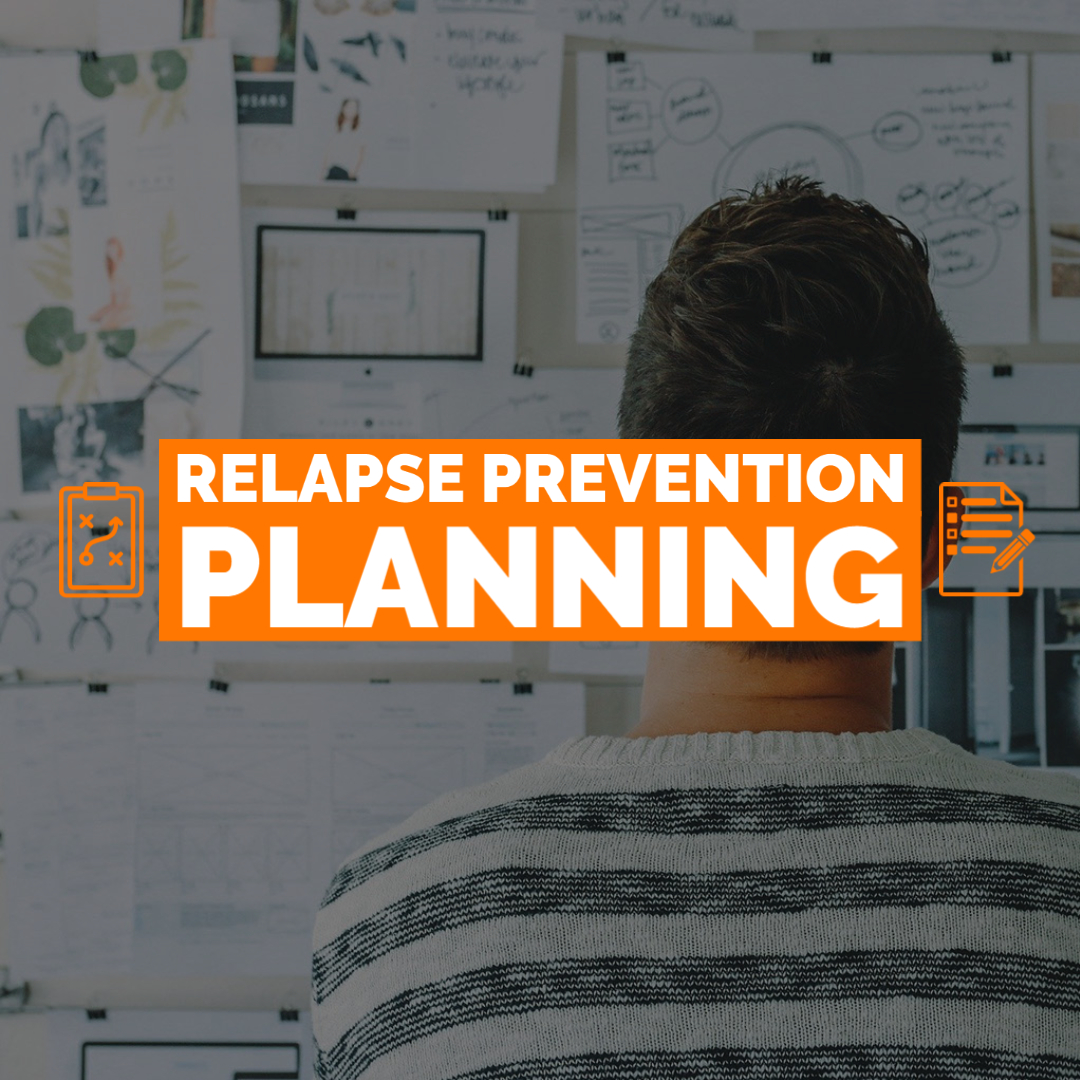Relapse Prevention Plan

The stress of preparing for the possibility of relapse can be intense. The chance of relapse into past addictive substances or behaviors is present from the initial detox until even years after a person has completed a recovery program. Having a relapse prevention plan in place early on can help each person better identify and react to potential stressors in order to prevent urges or stress from developing into a relapse. While relapses are common, they are by no means “necessary” to the recovery experience, and being prepared for them as early as possible can give each person the support and direction they may need to cope with any number of stressors before they can lead to a relapse.
Have a Consistent Daily Relief
Relapse prevention consists of daily implementations and strategies that a person can use when they are feeling a difficult urge or a large amount of stress on their sobriety. These daily practices can be making a dedicated time to talk with family or a support network about one’s emotional state or their progress in recovery, as well as scheduled time for self-care. These elements are incredibly important as allowing for regular outlets for safe self-expression can help prevent the buildup of stress beneath the surface. Relapse prevention plans will incorporate these daily elements on an individual level and these practices are the first lines of defense against feelings of isolation and stress that may lead to relapse.
Write Down the Prevention Plan
While it helps to have an idea of how a person can prevent relapse, it’s better to actually make a prevention plan. Writing down, typing up, or otherwise creating a physical version of one’s prevention plan can go a long way. Relapses can occur due to a number of different factors and stresses and triggers can quickly become overwhelming. Having a physical plan in place is intended to help a person quickly and effectively redirect their thoughts and energy into a particular action. Having a list of steps to take can provide needed structure in the middle of stressful episodes and can create a feeling of agency and direction that is essential in successfully coping with urges and preventing a relapse back to an addictive substance or behavior.
Identify the Stressors and Verbalize the Source
Stress can feel all-encompassing at times and can alter how each person views their environment. Without identifying a source of the stress or trigger, the stimuli of the world can be a lot to bear. In preventing relapse, it is important to try to identify the source of stress first and verbalize one’s emotions and feelings during the process. This may require a person to employ grounding strategies in the moment, even if it’s just counting to ten to clear a person’s head or naming objects in their environment to communicate a shared sense of reality with any support that may be present.
Support networks are vital to recovery and are intended to provide encouragement and guidance when someone is struggling during a difficult time. While acknowledging one’s struggles and identifying stressors is the first step to preventing relapse, the best thing a person can do is to reach out and verbalize how they are feeling to their support network. By asking others for help when needed, a person’s support network can help them talk through the situation and make good decisions.
Take a Break and Note Changes
Difficult urges can be exhausting and while a person may want to continue to take as many actions as possible, it may also be important just to take a step back and recuperate. Having a chance to rest can better allow a person to more objectively analyze how the situation and effectively communicate their experience. This can be just a night off chores, playing video games, going on a walk with a dog, or anything else that helps a person detach themselves from their stress and regain a clear mind about the situation. After taking a break, a person can begin to analyze what was unique about a particular situation. If going to the grocery store typically doesn’t cause any triggers, why was this particular trip different? Perhaps a person took a wrong turn and found themselves confronted with the liquor aisle, which caused a strong urge to drink. In this case, a person can identify the trigger and find a way to avoid it next time.
Reevaluate Goals
Battling urges and using relapse prevention tactics can cause a person to reevaluate their goals in recovery. However, this isn’t a setback by any means. Successful implementation of a relapse prevention plan, especially when using in-the-moment tactics, is a great cause for celebration. Due to the innumerable amount of potential stressors that may occur, identifying situations that may lead to triggering events can help a person refocus their goals in recovery. Looking at what worked, such as preparing a relapse prevention plan and reaching out to support networks, can indicate proficiency in this area, allowing more energy to focus on breathing techniques instead. Reevaluating these goals is a constant through any stage in recovery and is a testament to the developments that each person has made in their efforts to maintain their hard-earned sobriety.
Recovery is a long and complicated task, but the caring professionals at Brighton Recovery Center are ready to help you address your relationship with drugs, alcohol, trauma, or any co-occurring mental health disorders today. We provide individualized care with professionals and peers working alongside each other to instill the most pertinent coping mechanisms and life skills that address your unique needs and goals in your journey to sobriety, all while providing a robust set of core skills to help you build your safety net for relapse prevention. Our varied approach to recovery allows each person to explore their own interests in recovery, such as art therapy, movement therapy, yoga, meditation, and much more, all available across our expansive campus. To learn more about our approach to recovery and how we can personalize a plan to address your needs and goals or to speak to a caring, trained professional about your individual circumstance, call us today at (844) 479-7035.




